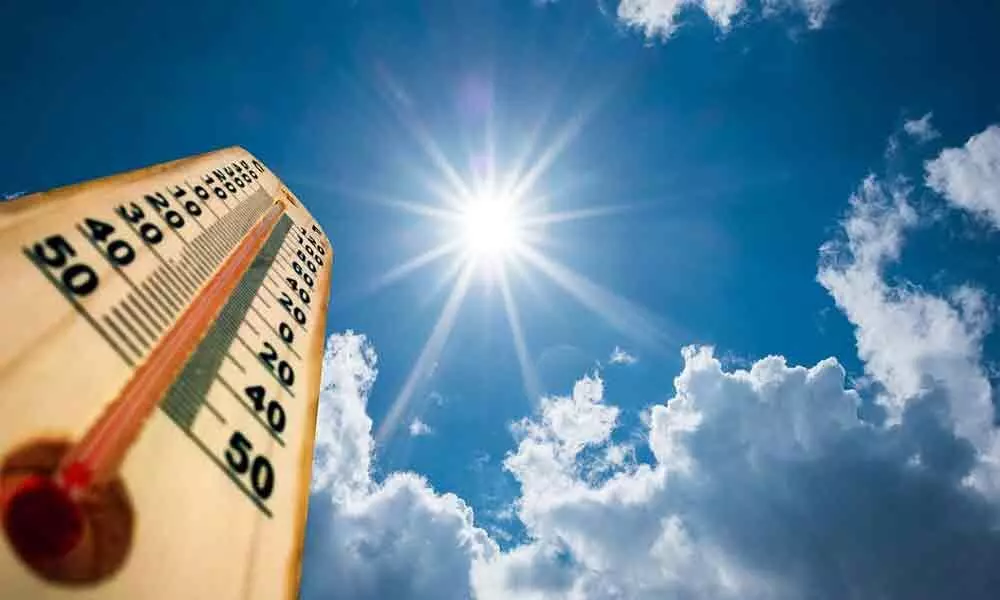Deadly heat waves, drought to occur across India
 Weather alert: Heat waves predicted in Andhra Pradesh for next two days (Representational Image)
Weather alert: Heat waves predicted in Andhra Pradesh for next two days (Representational Image)A report by the Inter-governmental Panel on Climate Change (IPCC) said that greater heat waves and droughts, increased rainfall events, and higher cyclonic activity are projected to occur across India and the subcontinent during the next several decades.
New Delhi: A report by the Inter-governmental Panel on Climate Change (IPCC) said that greater heat waves and droughts, increased rainfall events, and higher cyclonic activity are projected to occur across India and the subcontinent during the next several decades.
According to this frightening report on the condition of the world's climate, the fatal heat waves, floods, and droughts that are upending the lives of millions of people throughout the world will only grow worse as global temperatures continue to climb. For the Indian subcontinent, the report stated, "the observed mean surface temperature increase has clearly emerged out of the range of internal variability compared to 1850-1900. Heat extremes have increased while cold extremes have decreased, and these trends will continue over the coming decades."
According to the latest research by the WGI (Working Group I), the world would warm by 1.5 degrees Celsius in all scenarios. Even under the most aggressive emissions cut scenario, the temperature would rise to 1.5°C in the 2030s, overshoot to 1.6°C, and then fall to 1.4°C by the end of the century.
Warming over India is likely to follow the worldwide average, with an increase in the frequency and intensity of hot extremes, according to the IPCC study, which also forecasts a rise in annual mean precipitation. Rainfall during the monsoon season is also expected to rise.
The IPCC which assesses science behind climate change has for the first time provided a more detailed "regional assessment of climate change", which will help in risk assessment and taking necessary adaptation measures.
Though the report has not assessed the city-specific details while projecting impacts on urban areas in future, the prediction of faster sea-level rise may see its impact in the form of coastal flooding in low lying areas of India's vast coastline of 7,517 km dotted with big port cities such as Mumbai, Chennai, Kochi, Kolkata, Surat and Visakhapatnam. "For cities, some aspects of climate change may be amplified, including heat (since urban areas are usually warmer than their surroundings), flooding from heavy precipitation events and sea level rise in coastal cities," said the report.
Authors (scientists) of the report - Climate Change 2021: the Physical Science Basis - approved by 195 member governments, including India, however, still believe that the "strong and sustained reductions in emissions of carbon dioxide (CO2) and other greenhouse gases" would limit climate change through reaching 'net-zero' emissions by mid-century.
"Stabilizing the climate will require strong, rapid, and sustained reductions in greenhouse gas emissions, and reaching net zero CO2 emissions. Limiting other greenhouse gases and air pollutants, especially methane, could have benefits both for health and the climate," said the IPCC Working Group I Co-Chair Panmao Zhai.











